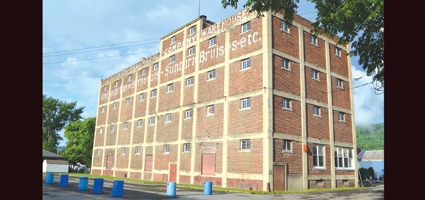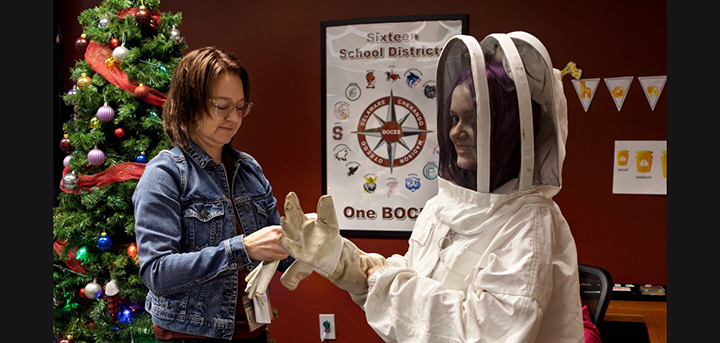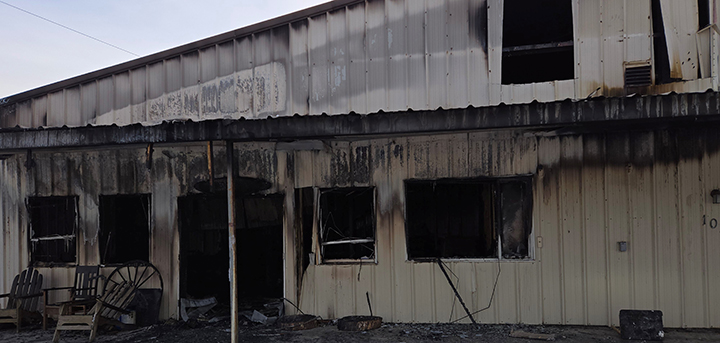City hears proposal to turn Unguentine Building into affordable housing
Shawn Magrath Photo
NORWICH – The City of Norwich Joint Committee is pondering a proposal that could breath new life into the long vacant Unguentine Building on American Ave. in the downtown area.
According to Community Development Specialist Todd Dreyer, there’s interest from a private development firm to repurpose the four-story, 67,000 square foot brick warehouse, once owned by Norwich Pharmaceuticals, for affordable housing with as many as 40 apartments. A walkthrough with a representative of the firm was coordinated last month between Dreyer and the building’s current owner.
“There’s definitely interest in the project, but they didn’t want to do it if it wasn’t going to be received well by the city’s elected officials,” said Dreyer.
The proposed project would include two apartments designated specifically for elderly tenants and about half a dozen for people with developmental disabilities. The remaining apartments would be available to families with 60 percent or less of the medium income (which is $24,780 annually for a single individual; $35,340 for a family of four).
The project, if pursued, would likely be eligible for the same tax credits received by Two Plus Four Management, the company that developed Cobbler’s Square Apartments on State Street in 2013. Although Two Plus Four pays approximately $26,000 a year in taxes, the property is re-assessed every year under a special section of property tax law. And that’s all part of the draw for the Unguentine Building, said Dreyer.









Comments